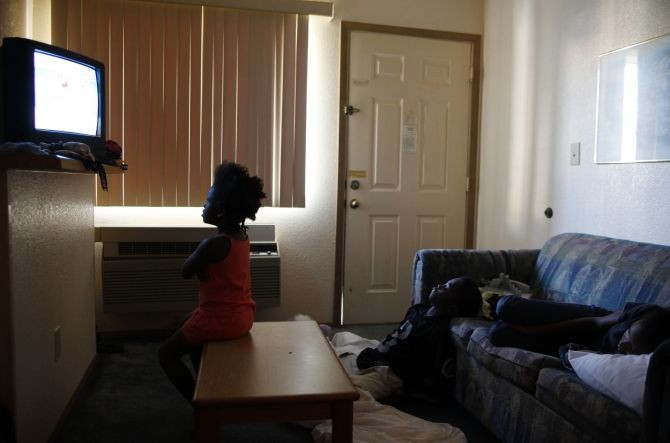TV Can Lower Self-Esteem in Kids except White Boys, Study

Watching TV can decrease self-esteem in black boys, black girls and white girls but increase self-esteem in white boys, a new study says.
"We can't deny the fact that media has an influence when they're spending most of their time -- when they're not in school -- with the television," said Nicole Martins, an assistant professor of telecommunications in the IU College of Arts and Sciences, and Kristen Harrison.
The study involved a small study group of around 400 adolescents. Researchers asked these kids about the duration of time they spent on watching TV. They found that black kids spend more time (up to 10 hours per week) watching television than kids of other ethnicities.
"If you are a girl or a woman, what you see is that women on television are not given a variety of roles. The roles that they see are pretty simplistic; they're almost always one-dimensional and focused on the success they have because of how they look, not what they do or what they think or how they got there," she added.
Television and magazines are often regarded as factors that influence girls to be thinner that leads to young girls to many eating disorders. There are hundreds of studies that draw conclusions between media like television and magazines and poor self-esteem or body image. There are however, studies that have found that the girls who wish to be thinner aren’t necessarily suffering from lower body-satisfaction.
Television makes children, especially white boys, believe that they can achieve things easily whereas black kids are often told that they may not achieve much in life.
"Young black boys are getting the opposite message: that there is not lots of good things that you can aspire to. If we think about those kinds of messages, that's what's responsible for the impact," Nicole Martins said.
Researchers say that kids may not have any real-life scales to measure up to so they tend to be influenced by what they watch on television.
"If we think just about the sheer amount of time they're spending, and not the messages, these kids are spending so much time with the media that they're not given a chance to explore other things they're good at, that could boost their self-esteem," Martins said.
"Even though these new technologies are becoming more available, kids still spend more time with TV than anything else," Martins said.
The study is published in the journal Communication Research.



























